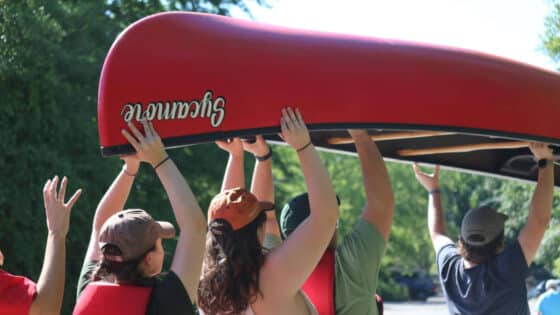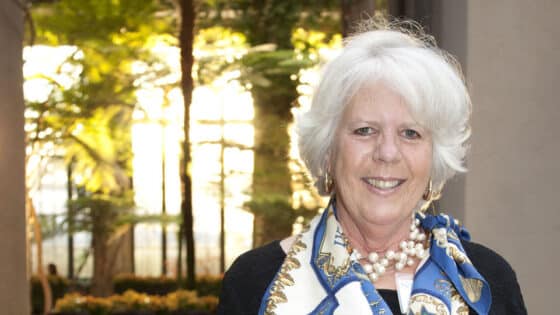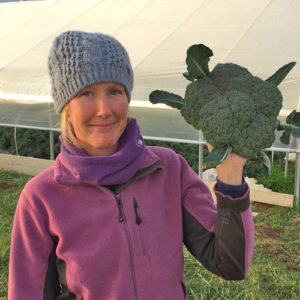
The path toward finding one’s calling is for some, if not easy, direct. For Deirdre Flemming, it was less so, but each hill and bend ultimately served her well and made her the intentional and informed farmer she is today.
When Flemming began attending West Chester University, she was on the pre-med track. However, just a couple of ecology classes later, she was hooked on freshwater science. Biology Professor Win Fairchild, Ph.D., suggested she apply for an internship at Stroud Water Research Center. “Dr. Fairchild told me it was one of the best internships I could get in the entire country, possibly the world, for someone interested in aquatic ecology,” remembers Flemming.
She was accepted, and in 2004, she began working in the entomology lab led by John Jackson, Ph.D. “She was a nontraditional student, a few years older than the average intern,” recalls Jackson. “As a result, she brought more experience and perspective to her questions.”
She and her fellow interns collected data on the upper Schuylkill. “That’s when I really started piecing together the ag piece of it. As we were processing the samples and looking at the data, I could see that the really badly impacted streams were abandoned mine sites or downstream from agricultural areas where no-till farming wasn’t really a thing,” says Flemming. “I started to think about water quality and what I was going to do for the rest of my life.”
Flemming considered graduate school and becoming a scientist to investigate the impact of farming on freshwater resources, but she was also interested in food production and cooking. She had grown up in an Irish family of seven children in which family meals were sacred.
“My mom taught me that no matter how busy you are, you make time on weekends to bring family together.” So she exchanged graduate school for a farming internship, and her fate was sealed. There she met her husband, Trey, who also has a science background — a degree in wildlife biology. The two were of similar mind, believing they could make a positive impact on the environment through a science-based sustainable approach to farming. And so Two Gander Farm was born.
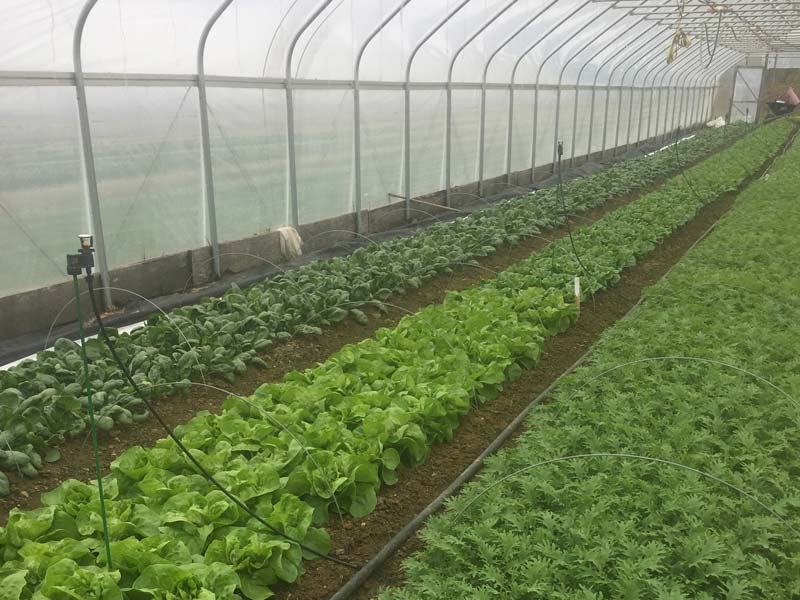
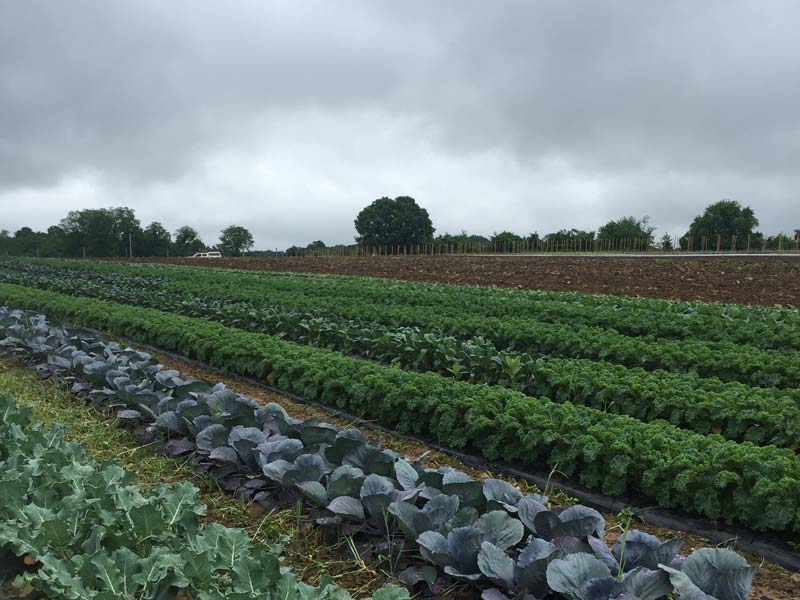
The couple started farming vegetables in Oley Valley, Berks County, and then in 2013, they moved to the Brandywine Conservancy’s Miller Farm in Downingtown, where they became Certified Organic the following year. “Our decision to partner with the Brandywine Conservancy on our land lease had a lot to do with shared values, with a concern for watershed health and an interest in how farmland preservation can play a huge role in that.” As soon as Rodale Institute starts accepting applicants, Flemming hopes to obtain Regenerative Organic certification for the farm.
Flemming encourages biodiversity on her farm by growing a variety of vegetables and a variety of carefully selected cover crops. “Our spring cover crop has peas in it, so there’s nitrogen fixation happening. Then we will mix that in with oars that can help scavenge nutrients from the soil. The cover crop prevents erosion so we don’t have exposed soil that can wash away. That cover crop gets chopped up and integrated into the soil, providing a lot of food for good bacteria. Most people tend to think about biodiversity from the ground up, but your highest diversity is in the soil, where there are literally billions of organisms,” she explains.
Soil health and water quality drive Flemming’s approach to farming, and she enjoys measuring the health of Two Gander Farm’s soil as part of the Pennsylvania Association for Sustainable Agriculture’s Soil Benchmark Study.
“Our approach to farming, which incorporates organic and regenerative practices, is applied ecology. I feel like the farm is our living laboratory, and I look at farming like an entomologist, looking at the different bug populations on the farm. It’s an integrated system, and I’m never bored.”
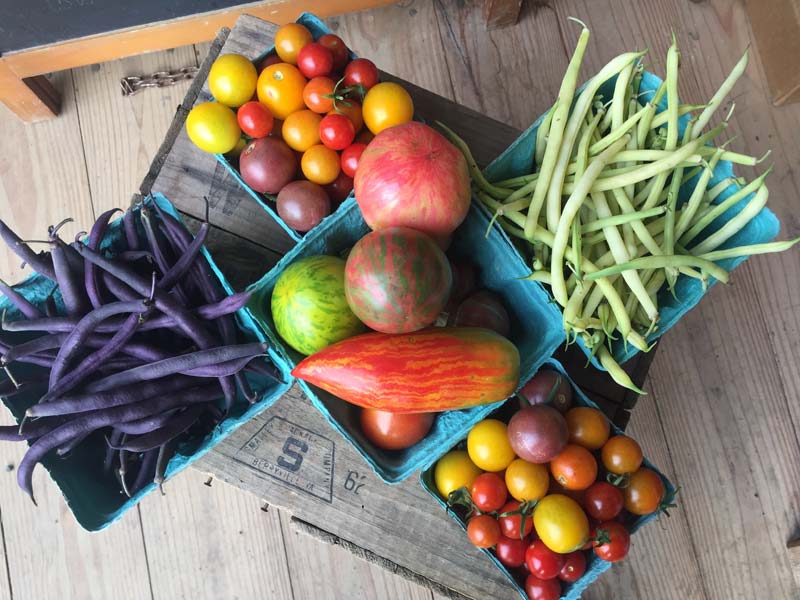
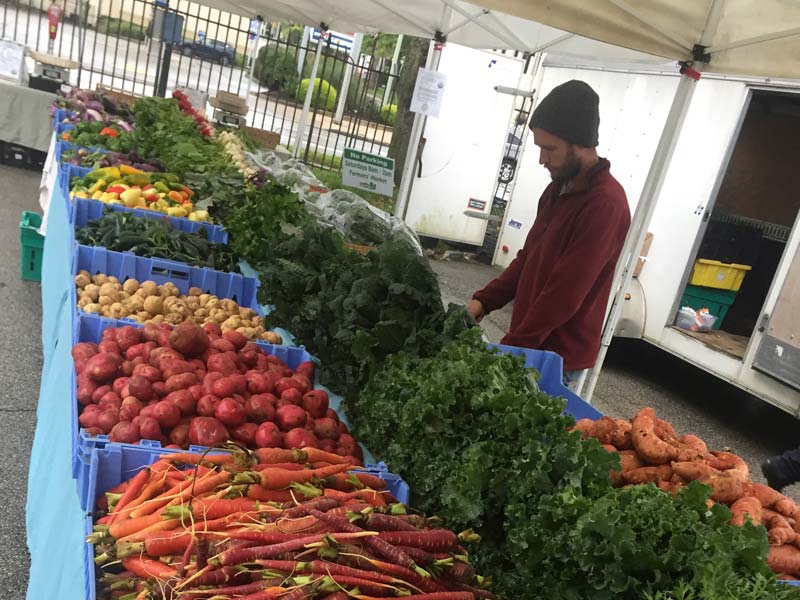
All photos courtesy of Two Gander Farm.

